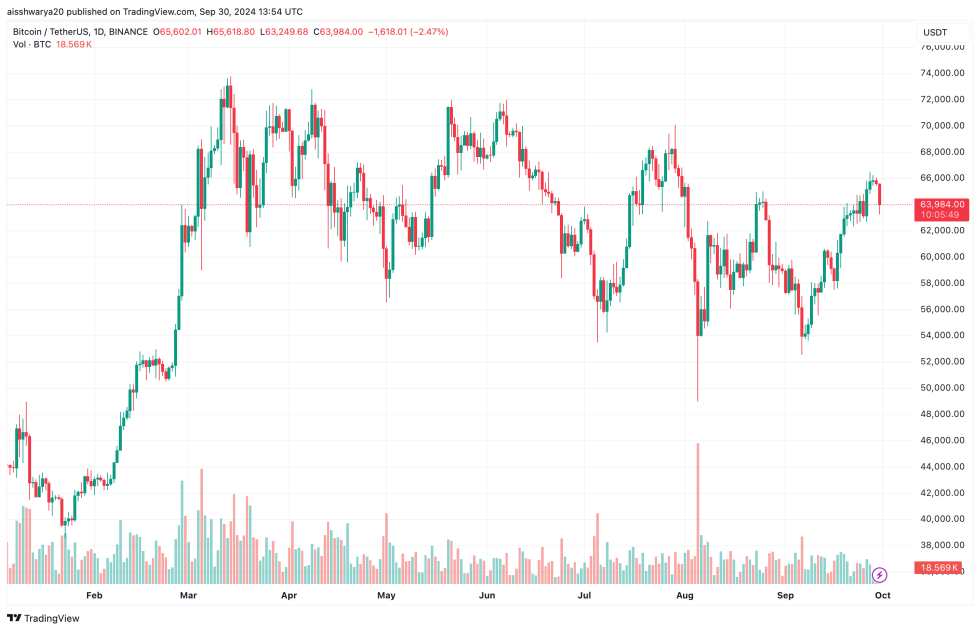and the distribution of digital products.
DM Television
Taiwanese Financial Watchdog OKs Foreign Crypto ETFs For Pro Investors
In an announcement on September 30, 2024, Taiwan’s Financial Supervisory Commission (FSC) greenlit foreign crypto exchange-traded funds (ETF) for professional investors.
Foreign Digital Assets ETFs Approved For Professional InvestorsAccording to the announcement, Taiwan’s FSC permits institutional investors to invest in foreign digital asset ETFs through a re-entrustment process. The announcement notes:
Professional investors include professional institutional investors, high net worth investment legal persons, high-asset clients, legal persons or funds belonging to professional investors, and natural persons belonging to professional investors.
For the uninitiated, re-entrustment is a process where one party delegates investment management to another, who then transfers that responsibility to a third party. This allows institutions to invest in specialized assets – including foreign crypto ETFs – through trusted intermediaries, ensuring proper oversight and expertise while accessing global markets.
In Taiwan’s context, Taiwanese institutions can now delegate investment management to local financial institutions. They can then assign a foreign asset manager to handle the investment in these crypto ETFs. This process facilitates seamless access to global crypto markets while ensuring that local regulatory oversight and risk management practices are followed.
The decision follows a period of deliberation with the Securities Business Association (SBA) concerning the risks associated with crypto ETF investments. The financial regulator has granted institutional clients permission to engage with foreign crypto ETFs.
However, several conditions must be met before securities firms or investors can invest in foreign crypto ETFs.
First, they must develop a “suitability system” approved by their board of directors. Further, they must gauge the client’s level of expertise with virtual assets before making or facilitating investments in crypto ETFs.
In addition, clients seeking to invest in crypto ETFs through re-entrustment must sign a risk warning before the initial purchase. The securities dealer should also provide virtual asset ETF-related commodity information before the client makes any purchase.
The FSC emphasized that it will keep a close eye on securities firms engaging with the ETF investment business, ensuring their regulatory-compliance, promotion investors’ rights, and boosting market competitiveness.
Contrasting Attitude Toward Crypto In AsiaWhile Taiwan’s decision reflects a growing interest in digital assets, other parts of Asia remain hesitant to embrace the emerging asset class due to its perceived volatility.
For instance, the Korea Institute of Finance (KIF) recently raised concerns about the potential adverse effects of spot ETFs on the South Korean economy.
Similarly, the Japanese financial regulator has stressed the need for “cautious consideration” regarding approving crypto ETFs. Interestingly, however, a recent survey found that Japanese institutional investors are becoming increasingly receptive toward digital assets.
In contrast, the Hong Kong financial regulator – the Hong Kong Securities and Futures Commission (SFC) – approved the first spot Bitcoin (BTC) ETF in April 2024. BTC trades at $63,984 at press time, down 2.7% in the past 24 hours.

- Home
- About Us
- Write For Us / Submit Content
- Advertising And Affiliates
- Feeds And Syndication
- Contact Us
- Login
- Privacy
All Rights Reserved. Copyright , Central Coast Communications, Inc.